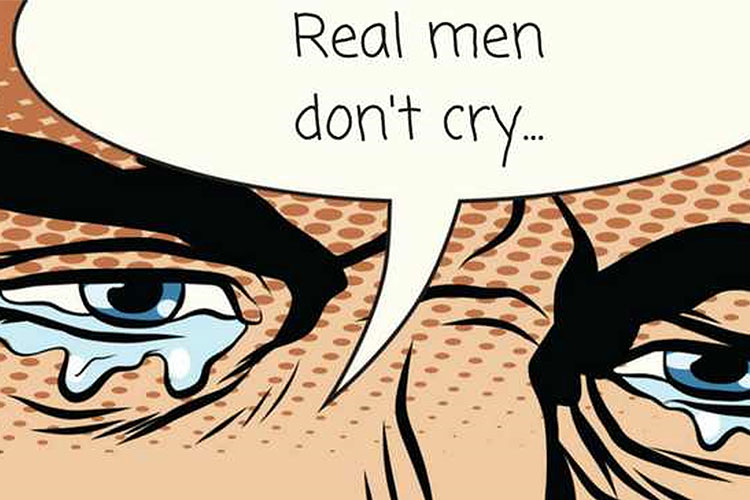Boys Don’t Cry
February 16, 2023
Lately on social media there has been increased attention to “bringing back real men.” In reaction to this, others have been encouraging men to embrace their femininity more. While there’s nothing wrong with that, it has brought on some questions, such as, what exactly makes a man a “man”?
Some might say a man is someone strong and dominant, and, who knows, maybe that is what a man is. However, that’s not the problem with toxic masculinity; the problem with it is men going around and bringing down other men for doing things that aren’t so “manly”.
What Toxic Masculinity Is
While the name “toxic masculinity” sounds like a direct attack at men and their masculinity, it’s really not that. Toxic masculinity isn’t shaming your manliness, but it is criticizing the way that there are some men who bring down other people for not conforming to society’s gender roles.
The New York Times published an article titled “What is Toxic Masculinity” where they define toxic masculinity as, “suppressing emotions or masking distress, maintaining an appearance of hardness, violence as an indicator of power” In other words, toxic masculinity is teaching boys that they have to be tough all the time because not doing so is seen as feminine and weak.
The Root of Toxic Masculinity
Toxic masculinity is not something that someone seeks out in life. It’s a series of learned behaviors from a young age that are hard to unlearn and grow out of. Toxic masculinity is deeply ingrained into society by teaching us that men are meant to behave in a specific way. Men are taught that they aren’t supposed to show emotion which is where the phrase “boys don’t cry” was born . This stereotypical behavior that all men are all supposed to follow is what makes it so easy for them to be ashamed when one doesn’t.
Masculinity in Personal Relationships
If you’ve ever known a man with toxic masculinity, you know that sometimes they can be incredibly hard to deal with. It’s hard to be around someone who always needs to be the dominant person in the room. Over time, having to deal with that gets mentally exhausting. Toxic men can ignore your needs and make it known that their needs will always be more important than yours. While this may not always be on purpose, they still need to be held accountable for their actions.
Stopping Toxic Masculinity
If toxic masculinity is so deeply ingrained into society and taught to many men from a young age, is it even possible for them to stop that behavior? Yes, it’s hard but not impossible. Men can educate themselves by trying to really listen to the experience of women and seeing the harm that their behavior causes them. They could try going to therapy or reading self-help books to change their behavior to educate themselves and other people on how important it is for men to grow out of this behavior.
Toxic Masculinity vs Healthy Masculinity
As opposed to toxic masculinity, with healthy masculinity men are able to really express their feelings and not be ashamed of them. This allows men to really talk about their feelings rather than suppressing them. Healthy masculinity is all about men supporting others rather than shaming them.
Books about toxic masculinity
-
For the Love of Men: From Toxic to a More Mindful Masculinity by Liz Plank
-
The Man They Wanted Me to Be: Toxic Masculinity and a Crisis of Our Own Making by Jared Yates Sexton
-
The Will to Change: Men, Masculinity, and Love by Bell Hooks
-
Boys Will Be Boys: Power, Patriarchy and Toxic Masculinity by Clementine Ford
-
Tough Guys Have Feelings Too by Keith Negley






Natalie • Feb 16, 2023 at 3:50 pm
I LOVE YOUR STORIES!!!!!!!!!!!!!!